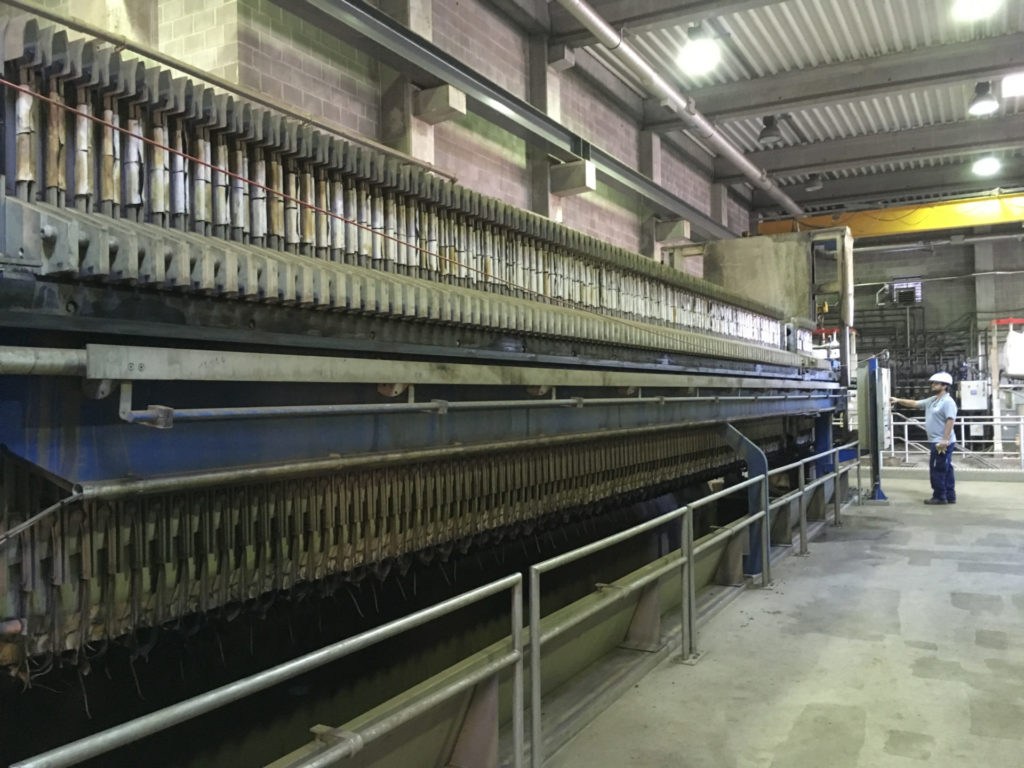Researchers from the two Brussels universities VUB and ULB have succeeded in extracting particles of gold, platinum and other metals from the sewers of the city.
The work is part of the Sublimus project carried out with the Meurice Research Institute in Anderlecht. It set out in March 2019 to measure the presence of gold, platinum, nickel and copper in sewer water, with a view to recuperation.
“In a world where primary raw materials are becoming increasingly scarce, it is crucial to evaluate the recycling potential of existing unused waste streams, such as sludge from sewage treatment plants,” explained project coordinator Dr Natacha Brion from VUB’s Analytical, Environmental and Geo-Chemistry research group.
The expected life-span of fresh supplies of metals such as lead, tin, zinc, gold and silver is about 20 years, after which the Earth’s underground supplies will run out or no longer be economical to mine.
But sewage water could be an alternative source.
Precious and heavy metals come into the sewers by a variety of processes: the erosion of jewellery, use in medications or in the catalytic converters now fitted to motor vehicles. The metals end up in the sludge that remains after the water in the sewers has been purified.
The sludge used to be sent to farms to be used as fertiliser, but the presence of high levels of heavy metals led to that practice being outlawed in Flanders.
If the metals could be extracted from the sludge, that would solve two problems with one solution: making the sludge safe again, or at least safer; and providing an alternative source of valuable metals.
“Large quantities of sludge from waste water treatment plants show toxic metal concentrations,” said Dr Brion. “So far, there is almost no other solution than to dispose of it after incineration, with the associated costs and environmental risks. Extraction and recycling of metals from sludge is therefore not only a way of meeting the metal scarcity, it also makes it possible to turn a toxic waste product into a fully-fledged source of raw materials."
The Sublimus project consists of three stages:
First, researchers study the amount of precious and heavy metals found in the sludge. For this purpose, VUB researchers are carrying out measurements in sludge samples from the two Brussels treatment plants.
Next, they will investigate how these metals can be extracted from the sludge in an environmentally friendly way. Meurice R&D researchers will investigate whether they can use special bacteria to ‘wash’ metals from the sludge.
Finally, VUB and ULB scientists are investigating how they can purify and recycle the precious metals from this metal mixture in an environmentally safe process. An example is the development of specific gold-binding nanomaterials with magnetic properties that can be removed from the mixture with a magnet after bonding.
The project is due to run until February next year, with researchers hoping eventually to be able to extract 10kg of gold from the sewers in a year, and one kilo of platinum.
Those quantities at today’s prices represent sums of $555,900 (€473,501) for gold and $32,853 (€27,978) for platinum.

